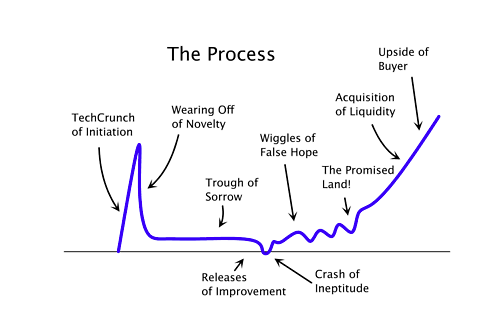Startups die due to a variety of causes. Over the course of the last three years, I’ve watched many of my friends pour their hearts and souls into companies that, for one reason or another, just fizzled out of existence.
In 2007, Paul Graham gave a variety of causes for startup death in How Not To Die. He wrote:
When startups die, the official cause of death is always either running out of money or a critical founder bailing. Often the two occur simultaneously. But I think the underlying cause is usually that they’ve become demoralized. You rarely hear of a startup that’s working around the clock doing deals and pumping out new features, and dies because they can’t pay their bills and their ISP unplugs their server.
The other major thing Graham advises startups not to do: “other things”. Namely:
[D]on’t go to graduate school, and don’t start other projects. Distraction is fatal to startups. Going to (or back to) school is a huge predictor of death because in addition to the distraction it gives you something to say you’re doing. If you’re only doing a startup, then if the startup fails, you fail.
In early 2011, I wrote a post, Startups: Not for the faint of heart, that discussed Parse.ly’s survival through a one-year bootstrapping period after Dreamit Ventures Philly ’09. Since then, I’ve witnessed yet more startup deaths, and especially extended “troughs of sorrow”.
As a result, I’ve had a kind of mild survivor guilt, and have started to look for patterns in causes in the deaths I have witnessed.
Continue reading Why Startups Die

